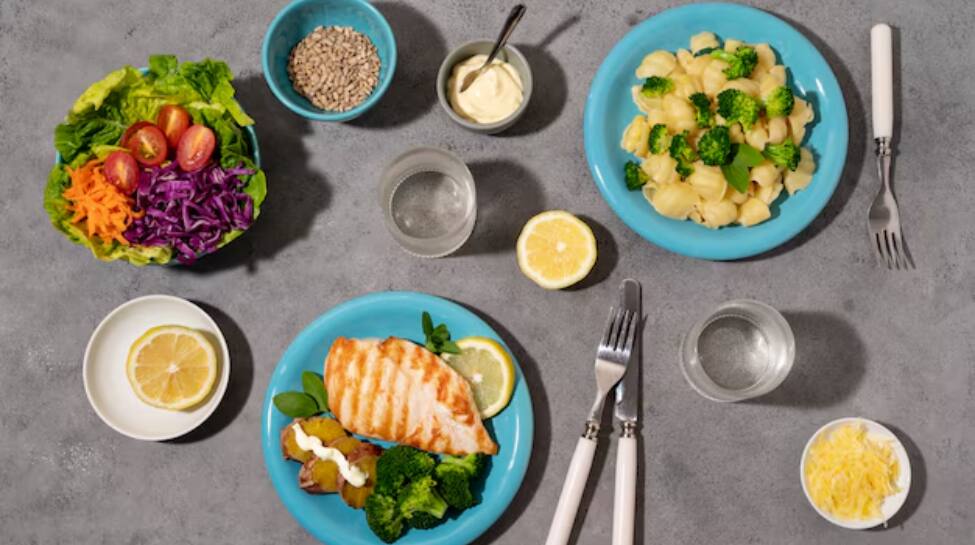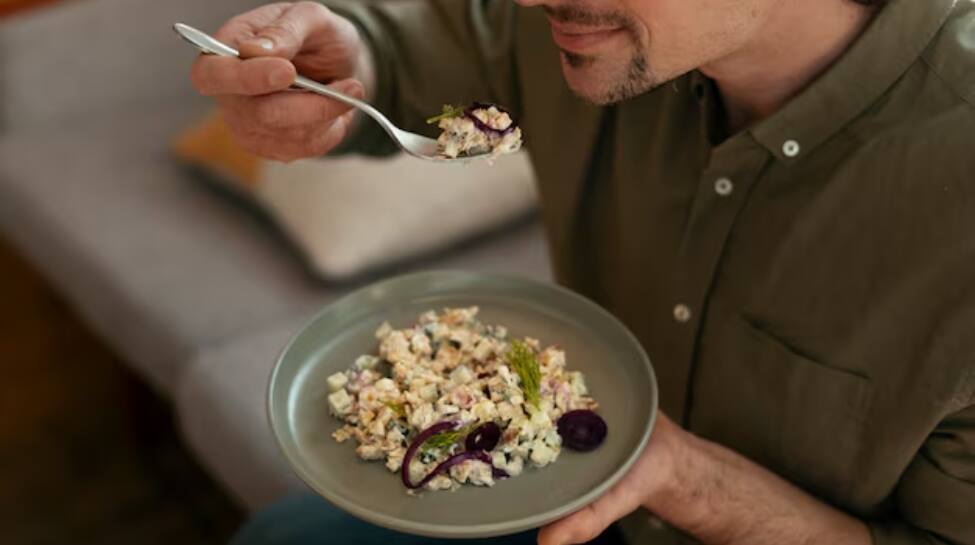Constipation Awareness Month 2024: 10 Dietary Changes You Can Make For Better Digestion
Constipation Awareness Month 2024: Learn how to improve digestion and combat constipation with these 10 simple dietary changes.
10 Dietary Changes You Can Make For Better Digestion
)
December is Constipation Awareness Month, a time dedicated to spreading awareness about one of the most common and often overlooked health issues. Constipation, marked by infrequent or challenging bowel movements, affects millions globally and can lead to complications if left untreated. While medications and lifestyle changes play a role, your diet is a cornerstone of maintaining digestive health.
Here are 10 dietary changes you can make to improve digestion and relieve constipation:
Increase Fibre Intake

Adding fibre to your diet is one of the most effective ways to combat constipation. Foods rich in fibre, such as whole grains, fruits, vegetables, and legumes, help bulk up stool and facilitate easier bowel movements. Aim for at least 25–30 grams of fibre daily.
Tip: Start your day with oatmeal topped with berries or sprinkle flaxseeds over a salad for a fibre boost.
Stay Hydrated

Dehydration is a common cause of constipation. Drinking enough water softens stool, making it easier to pass. Include herbal teas and natural fruit juices to maintain hydration levels.
Tip: Begin your morning with a glass of warm water and lemon for a gentle digestive kickstart.
Incorporate Probiotics

Probiotic-rich foods like yogurt, kefir, sauerkraut, and kimchi introduce good bacteria to your gut, promoting a healthy digestive environment.
Tip: A daily serving of probiotic yogurt can support regular bowel movements.
Avoid Processed Foods

Processed foods are often low in fibre and high in unhealthy fats and sugars, which can slow digestion. Opt for whole, minimally processed foods instead.
Tip: Replace chips with roasted chickpeas or fresh fruit for a healthier snack.
Include Healthy Fats

Fats help lubricate the digestive system and support bowel movements. Sources like olive oil, avocados, and nuts are excellent for promoting gut health.
Tip: Drizzle olive oil over steamed vegetables or add sliced avocado to your meals.
Add Magnesium-Rich Foods

Magnesium helps relax the intestinal muscles and improve stool movement. Incorporate foods like spinach, almonds, and bananas into your diet.
Tip: A small handful of nuts as a midday snack can keep your magnesium levels up.
Eat Smaller, More Frequent Meals

Large meals can overburden your digestive system. Opt for smaller portions spread throughout the day to support digestion.
Tip: Stick to three main meals and two light snacks daily to keep your digestive system active.
Avoid Caffeine and Alcohol

Excessive caffeine and alcohol can dehydrate the body and worsen constipation. Limit your intake and replace these with herbal teas or water.
Tip: Swap your evening coffee for chamomile tea, which also soothes the digestive tract.
Don’t Skip Meals

Irregular eating patterns disrupt the digestive process. Maintaining a consistent meal schedule trains your body to regulate bowel movements.
Tip: Try to eat at the same times every day, even on weekends.
Experiment with Natural Laxatives

Certain foods, such as prunes, figs, and papaya, act as natural laxatives, helping to ease constipation naturally.
Tip: A small bowl of prunes or a fresh papaya slice after dinner can work wonders.
Why Focus on Constipation Awareness?

Chronic constipation can lead to serious issues like haemorrhoids and anal fissures. Awareness campaigns during Constipation Awareness Month encourage individuals to adopt healthier habits and seek timely medical intervention if necessary.
By making these simple dietary changes, you can improve your digestion, reduce constipation, and enhance your overall health. Remember, small steps today can lead to a healthier tomorrow.
Trending Photos









